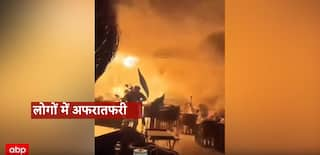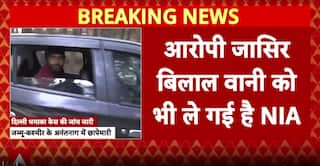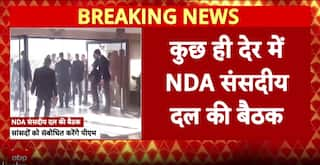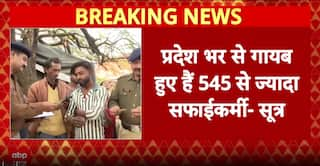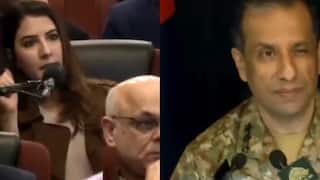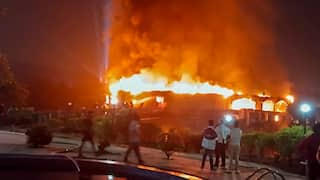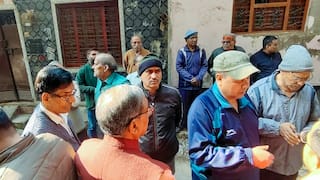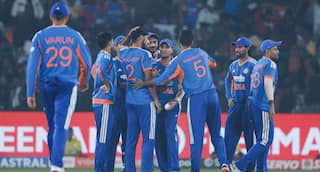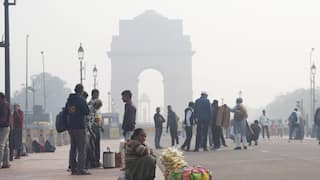What Is Genocide? Decoding Legal Definition Of The Term As The Kashmir Files Triggers A Debate

The recently released film, The Kashmir Files, has opened a debate on genocide, or what constitutes the term. Is it a loose term or does it have a specific meaning? Arguments are being made regarding the number of deaths required to call a mass murder, genocide. Lastly, is death or killing a sine qua non (essential condition) for a genocide to be committed?
What Is Genocide?
Genocide has a fairly recent etymology as an English language word. The credit to coin the word goes to Raphael Lemkin, a Polish-Jewish jurist. The word appeared in his seminal book, ‘Axis Rule in Occupied Europe’, in which he chronicled Nazi atrocities. Explaining the term, he wrote: “By genocide we mean the destruction of a nation or of an ethnic group. This new word, coined by the author to denote an old practice in its modern development, is made from the ancient Greek word genos (race, tribe) and the Latin cide (killing).”
Genocide, A 'Term Of Art'
Genocide is not a loose term. It is very specific in its content. Genocide first appeared as international crime in the International Military Tribunal Charter (IMT) and Control Council Law No. 10 — not as explicit crime but as other crimes defined in the IMT.
Genocide acquired the status of an international crime independent of any other international crime in Genocide Convention of 1948. This convention was adopted by the United Nations General Assembly.
The crime of genocide was then incorporated in ad hoc tribunals of International Criminal Tribunal for the Former Yugoslavia and International Criminal Tribunal for the Rwanda. Finally, it has now been incorporated as a specific crime in the Rome Statute of International Criminal Court.
All these international statutes have used the content of the crime in verbatim from Genocide Convention, 1948. Genocide means any of the following acts committed with the intent to destroy, in whole or in part, a national ethnical, racial or religious group (ArtII, Genocide Convention);
- Killing member of the group;
- Causing serious bodily or mental harm to members of the group;
- Deliberately inflicting on the group conditions of life calculated to bring about its physical destruction in whole or in part;
- Imposing measures intended to prevent births within the group;
- Forcibly transferring children of the group to another group.
As is clear from the definition aforementioned, genocide is not necessarily killings. The two most important things to determine the objective requirement of genocide was to identify the victim as the member of one of the group provided in the definition, i.e. member of a national group, ethnic group, racial group.
This group could be any group of young women, young men, children or any other group. Once we have identified that victim has suffered because of his/her membership with any of the group mentioned in the Genocide Convention, this suffering must be any of the four objective manifestation of the genocide. Thus, it could be killing, or serious bodily or mental harm to members of a group etc.
The bottom-line is that for a crime of genocide to be committed, killing is not the sole requisite component. Genocide could be caused if the member of any religious, ethnic, national or racial group has suffered serious bodily or mental harm. Most importantly, the perpetrator must commit these crimes with the intention to destroy the group as seen.
Genocide By Killing
Before we answer if the atrocities committed against the Kashmiri Pundits were genocide or not, let us first know the quantitative requirement of genocide. In other words, how many killings does it take to commit a crime of genocide? A simple answer to this question is any number more than one, if the crime was committed with the intent to destroy a group, in part or whole. Hence, even if two people were killed with the intention to destroy the group (nation, religious, ethnic or racial) of which they were part, it’s a genocide.
Is Ethnic Cleansing Genocide?
Ethnic cleansing means forcible transfer of a group from a village, a state or any area. Scholars are divided on this question, and there is no certain and final answer. Certain municipal courts [German Constitution Court in Prosecutor v Nikola Jorgic (2 BvR 1290/99)] have considered ethnic cleansing as part of crime of genocide if it was committed with the intention to destroy the group.
Were The Kashmiri Pandits Victims Of Genocide?
Kashmiri Pandits may have suffered genocide on two counts — first by killings, and second by serious bodily or mental harms to the members of the group. This can be explained further with the following points:
- Kashmiri Pandits did suffer because they belonged to one of the four groups mentioned under Article II of the Genocide Convention, 1948. They were targeted because they were part of Hindu religion, and can easily be considered a ‘nation’ of Kashmiri Pandits in Kashmir Valley.
- As explained above, there is no requirement of mass murder for a crime to be termed genocide. Even two deaths are sufficient as a number to constitute the crime of genocide, if it was committed with the intention to destroy the group.
- A genocide is committed even if there hasn't been a single killing, but the aggressors succeed in inflecting serious bodily or mental harm to a group, with the intention to destroy it.
The author is a PhD fellow at Hamburg University. He has written two books on financial laws.
[Disclaimer: The opinions, beliefs, and views expressed by the various authors and forum participants on this website are personal and do not reflect the opinions, beliefs, and views of ABP News Network Pvt Ltd.]








